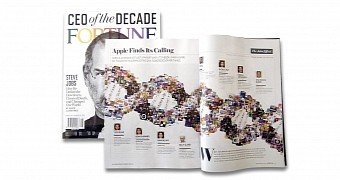Apple has launched a platform for medical research, and recently, it has become apparent that Cupertino’s ambitions are quite grandiose and might even target the string of molecules that encode the genetic instructions that make you you (to be read as DNA).
MIT sources have revealed that Apple has taken up a collaboration with US researchers to launch apps that would allow iPhone users to get their DNA tested.
Apple introduced the ResearchKit platform back in March, in an effort to help hospitals and scientists use iPhones as tools for collecting data through the device’s sensors. Well, these future DNA apps will be based on the ResearchKit.
One of earliest apps based on ResearchKit, which is called mPower and has been developed to track the symptoms of Parkinson’s disease, has quickly drawn the attention.
Apple wants to help you test your DNA
Apple won’t directly come to collect your DNA or test it, as you might have imaged. The idea behind these projects is to make it easier for participants to collect their DNA and send it to scholar partners for testing.
When information related to their genetic material becomes available, iPhone owners will be able to view it on the display of their phone within the application.
The Cupertino giant will be involved in several studies related to DNA collection. One in particular is planned by the University of California, San Francisco, whose goal is to study causes of premature birth by combining gene tests with other data collected via the phones from expectant mothers.
There are more DNA studies planned that are to look at 100 medically important disease genes, but not a person’s entire genome.
Those interested in joining these studies must know that they would have to agree to gene testing procedures like a “spit kit” to be performed in a laboratory approved by Apple.
Is your DNA information important for you?
The Cupertino tech giant is joining a select list of companies that are trying to cue people into doing more with their own genetic material. Among them are genealogy website Ancenstry.com and the Open Human Project.
And given that Apple’s iPhones are selling like hotcakes all around the world, it means more and more people would have faster access to genetic information.
However, given that DNA information is pretty tricky to handle, Apple will have to construct a protocol to deal with these issues.
But the biggest challenge remains the fact that the majority of consumers don’t have a real interest in their DNA, as there’s no real life use for it. Geneticists argue that this might change in the next 10 years.

 14 DAY TRIAL //
14 DAY TRIAL //